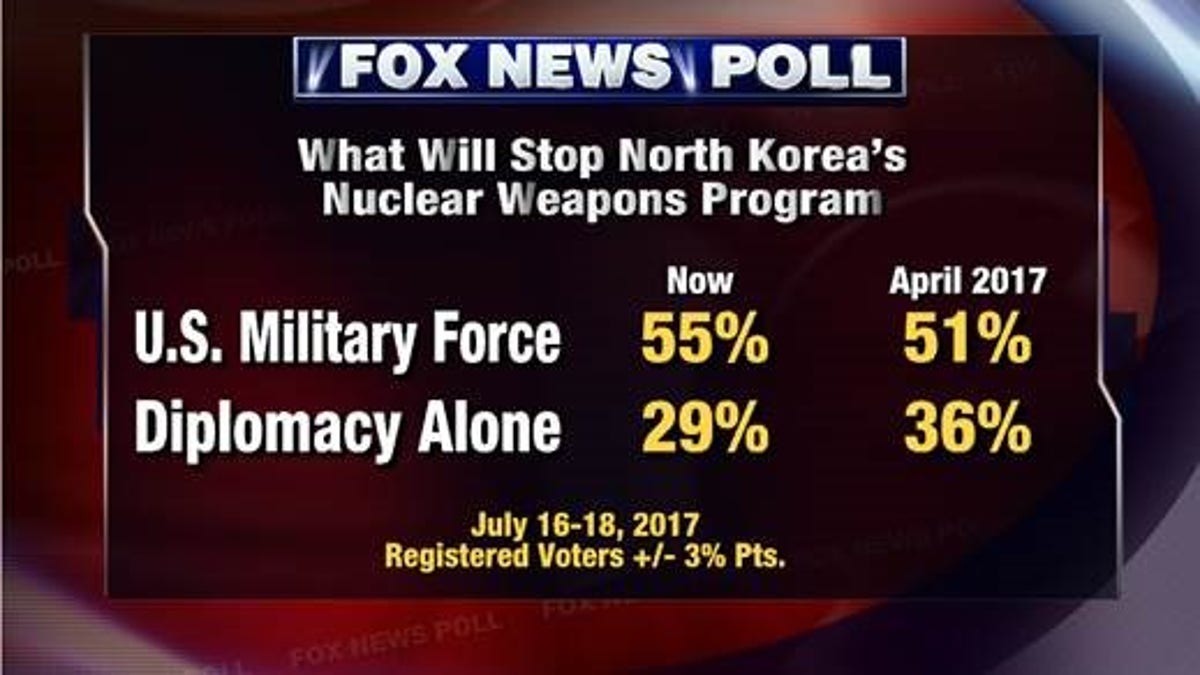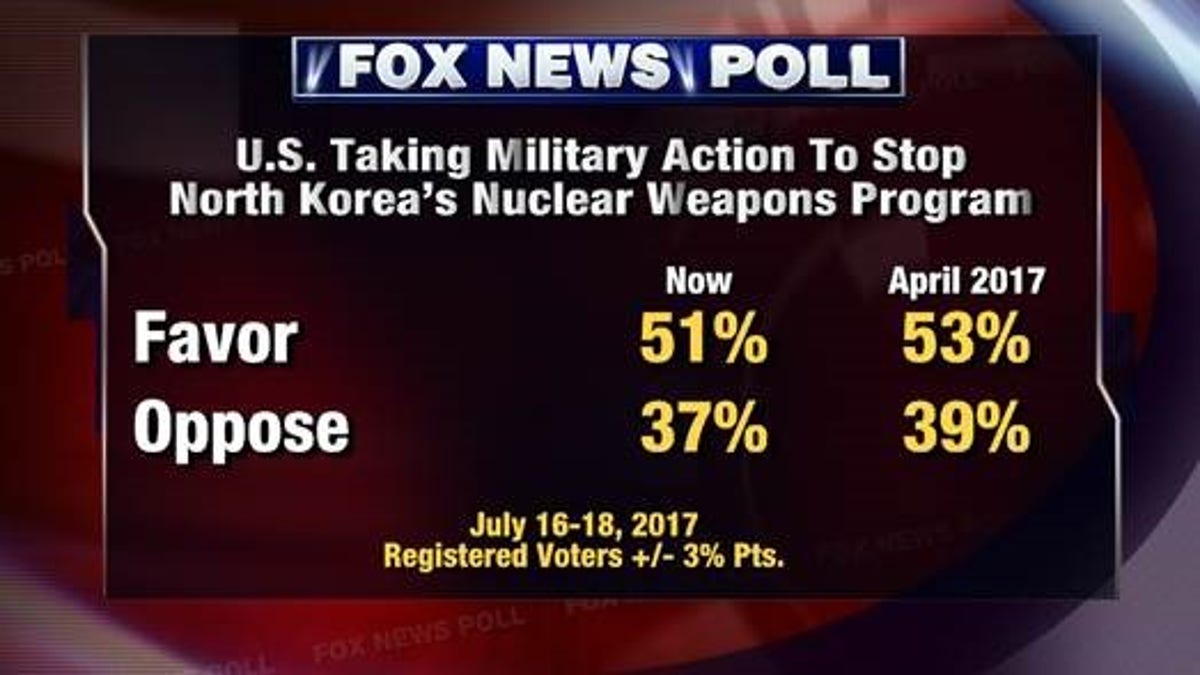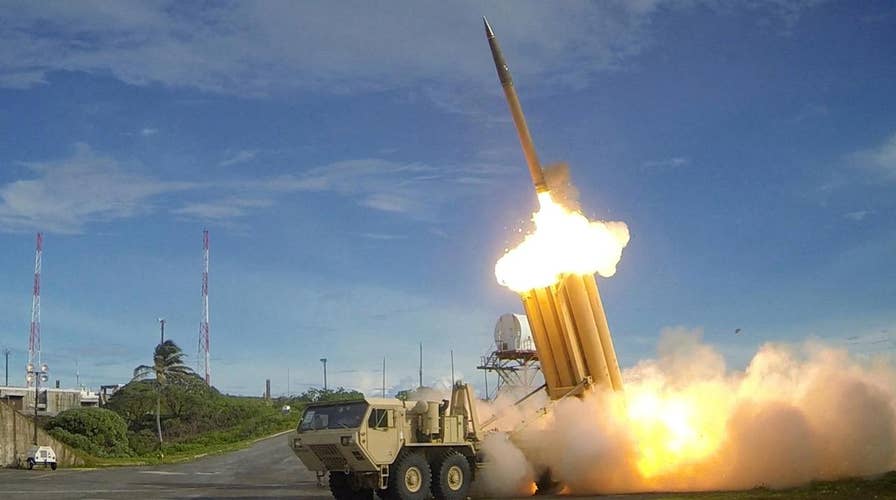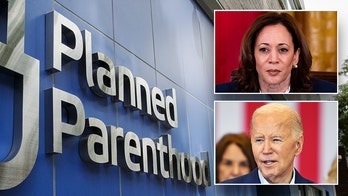Eric Shawn reports: Facing the North Korea threat
The US prepares a new THAAD test to shoot down a missile
A majority of American voters thinks military force will be required to stop North Korea from continuing work on nuclear weapons -- and half favor the U.S. using such force.
Fifty-five percent in the latest Fox News Poll say U.S. military force will be required to stop North Korea’s work on nuclear weapons. It was 51 percent in April. Since that time, North Korea has conducted several missile tests, including the successful July 4 launch of an intercontinental ballistic missile (ICBM).
CLICK HERE TO READ THE FULL POLL RESULTS

Three in ten voters think diplomacy alone is the answer (29 percent), down from 36 percent in April.

Just over half, 51 percent, favor taking military action, while 37 percent are opposed.
Republicans (73 percent) and independents (56 percent) are far more likely than Democrats (39 percent) to think military force will be required. And twice as many Republicans (73 percent) as Democrats (35 percent) favor taking military action.
Meanwhile, almost seven in ten voters (68 percent) are concerned about a war with North Korea (29 percent are not). Majorities across the board feel that way: men (60 percent), women (76 percent), voters under age 45 (64 percent), ages 45 and over (71 percent), Democrats (78 percent), Republicans (60 percent) and independents (63 percent).
War with North Korea isn’t the biggest worry for voters right now, however. Larger numbers are concerned with health care (82 percent concerned), the future of the country (81 percent) and the nation’s economy (75 percent).
How do voters feel the president is doing on North Korea? More (45 percent) disapprove than approve (41 percent) of the job President Donald Trump is doing handling North Korea.
Moreover, he has a net negative job rating (approve minus disapprove) on every issue tested: the economy (45 approve-46 disapprove), immigration (42-53), Syria (40-45), Iran (37-44), Russia (33-56), and health care (32-59).
The Fox News poll is based on landline and cellphone interviews with 1,020 randomly chosen registered voters nationwide and was conducted under the joint direction of Anderson Robbins Research (D) and Shaw & Company Research (R) from July 16-18, 2017. The poll has a margin of sampling error of plus or minus three percentage points for all registered voters.





